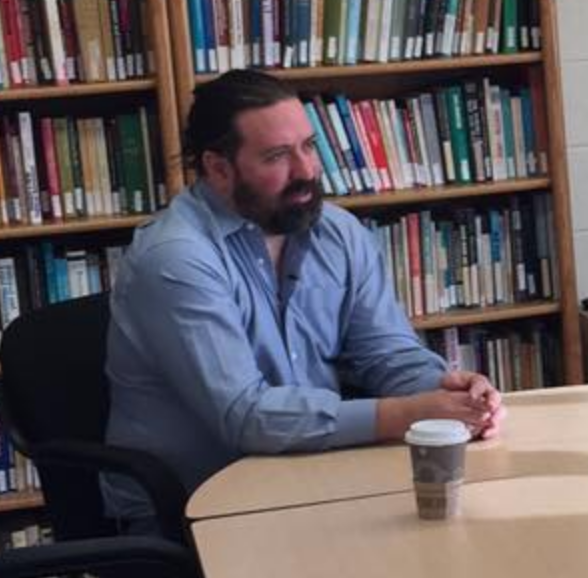- PHIL 2010: Introduction to Ethics
PHIL 2010: Introduction to Ethics
Course Description: Ethics is concerned with how we should live our lives and with what separates right from wrong action. In these inquiries, we can focus on overarching normative theories, or else on particular topics to which these theories can be applied; we will spend roughly half the course in each regard. Starting with normative theories, we will consider: the virtue ethics of Plato and Aristotle, the social contract theories of Thomas Hobbes and John Locke, John Stuart Mill’s utilitarianism, and Immanuel Kant’s deontology. After our survey of normative theories, we will consider a range of topics in applied ethics: abortion, cloning, euthanasia, animal rights, capital punishment, terrorism, and torture. Our study of ethics will be complemented by movies that develop moral themes; a principal focus will be on integrating our abstract inquiries with popular media in the hopes of augmenting the ways in which we think about ethics.
Course Syllabus (Spring 2011, Fall 2011)
- PHIL 3310: Moral Philosophy
PHIL 3310: Moral Philosophy
Course Description: Ethics is frequently divided into three branches: meta-ethics, normative ethics, and applied ethics. In this course on theoretical ethics, we will study the first two branches. We will begin by studying two traditional challenges to morality: cultural relativism and amoralism. Next, we will study some issues in meta-ethics, especially focusing on the meaning of moral claims. For the latter half of the course, we will discuss the three most dominant moral theories: utilitarianism, deontology, and virtue ethics. For each of these theories, we will consider classical formulations, as well as the associative criticisms.
Course Syllabus (Spring 2006)
- PHIL 5700/6000: Experimental Philosophy
PHIL 5700/6000: Experimental Philosophy
Course Description: Philosophy has traditionally taken place from the armchair; experimental philosophy portends a philosophical revolution wherein the methodologies for doing philosophy are expanded from armchair reflection to include broader engagement. As philosophers’ intuitions are thrown into conflict with those of more diverse populations, what should be the status of received philosophical wisdom? Do philosophers’ intuitions occupy some sort of privileged status? Can “folk” intuitions be informative in the construction of our philosophical theories, or can experimental results only undermine traditional work? What do cross-cultural differences tell us about the epistemic status of our intuitions? What is the relationship between experimental philosophy and empirical approaches to philosophy more generally? In this seminar, we will explore these and other questions; particular coverage will be dictated by student interest.
Course Syllabus (Spring 2011 [6000], Spring 2014 [5700])
- PHIL 6310: Contemporary Problems in Political Philosophy
PHIL 6310: Contemporary Problems in Political Philosophy
Course Description: American politics has devolved into polarized extremes, made no better by last year’s divisive election. The aim of this seminar is to critically evaluate some of the most contentious issues facing us, as well as to try to charitably construct—as opposed to caricature—arguments from across the political spectrum. The methodology will be broadly interdisciplinary, drawing from sources in philosophy, political science, and law. The first unit is theoretical, trying to understand the differences between liberalism and conservatism, as well as different approaches to judicial interpretation. The second unit looks at issues in voting, gerrymandering, and campaign finance. The third unit considers the First Amendment, specifically religious tolerance, religious liberty, and hate speech. The final unit engages patriotism, nationalism, immigration, and the Second Amendment.
Course Syllabus (Fall 2017)
- PHIL 6310: Ethical Theory
PHIL 6310: Ethical Theory
Course Description: We will read three books related to ethical theory. Grandstanding is about the use (and abuse) of moral language. The Philosophical Baby spans a range of issues, many of which are related to cognitive science and moral psychology. The Soil Will Save Us is a foray into environmental ethics, covering everything from regenerative approaches to agriculture to mitigation of climate change. Students may write research papers on any of these topics—or other related areas.
Course Syllabus (Fall 2021)
- PHIL 6310: Memory
PHIL 6310: Memory
Course Description: This seminar explores the ethical, legal, philosophical, and scientific dimensions of memory. The first set of unit surveys these dimensions, as well as the related topics of remembering, forgetting, and false memories. The second set of units looks at more purely philosophical topics, including personal identity and external memory. We then explore amnesia, before turning to collective and historical memories. What does it mean for “us” to remember the Holocaust—or the Civil War? Should atrocities be remembered or forgotten? Does forgiveness require forgetting? The last series of units looks at applications, including memory dampening as a prospective treatment for post-traumatic stress disorder or rape, the fallibility of eyewitness memory, and Europe’s so-called right to be forgotten.
Course Syllabus (2018)
- PHIL 6310: Ethical Theory
PHIL 6310: Ethical Theory
Course Description: We will read three books related to ethical theory. Grandstanding is about the use (and abuse) of moral language. The Philosophical Baby spans a range of issues, many of which are related to cognitive science and moral psychology. The Soil Will Save Us is a foray into environmental ethics, covering everything from regenerative approaches to agriculture to mitigation of climate change. Students may write research papers on any of these topics—or other related areas.
Course Syllabus (Fall 2021)
